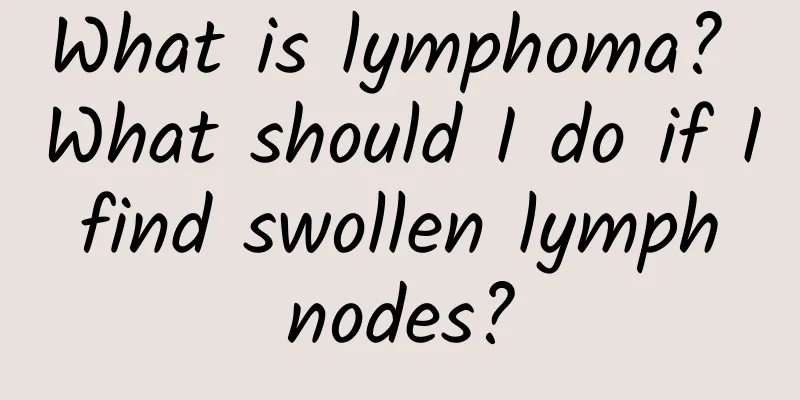"Breakthrough therapy"! Chinese scientists activate new role of "anti-cancer agent"

|
Hepatocellular carcinoma is one of the malignant tumors with a poor prognosis worldwide. It is prone to recurrence after treatment, and the 5-year survival rate of patients is only about 18%. Common symptoms of early liver cancer include abdominal pain, fatigue, weight loss, etc. Since the symptoms are not obvious, many patients have entered the middle and late stages when they are diagnosed, missing the golden time for surgical resection. The treatment of advanced liver cancer is particularly difficult. Although targeted therapy and immunotherapy have made some progress, the problem of drug resistance after multiple rounds of treatment is prominent, resulting in many patients facing the dilemma of limited treatment options and poor prognosis. Therefore, the development of new treatment strategies has become a clinical problem that needs to be solved urgently. Based on the previous research accumulation on the immune resistance mechanism of liver cancer, the team of Professor Liang Tingbo from the First Affiliated Hospital of Zhejiang University School of Medicine successfully developed the world's first third-generation oncolytic virus VG161 with the cooperation team, breaking through the bottleneck of drug resistance and achieving breakthrough efficacy in the treatment of relapsed and refractory liver cancer. The relevant research results were recently published in Nature under the title "Oncolytic virus VG161 in refractory hepatocellular carcinoma", indicating that the team's research in this field has reached the international leading level. Shen Yinan, Bai Xueli, Zhang Qi and Liang Xingmei from the First Affiliated Hospital of Zhejiang University School of Medicine are the co-first authors, Liang Tingbo is the only corresponding author, and Zhejiang University is the only corresponding unit. Solving the dilemma of “no cure” After multiple rounds of drug treatments such as immune drugs and targeted drugs, liver cancer cells are prone to drug resistance. Drug resistance not only allows cancer cells to break free from the "shackles" of drugs and regain growth momentum, leading to further liver failure in patients, but may also cause serious complications such as ascites, jaundice, and hepatic encephalopathy, greatly affecting the patient's survival and quality of life. "There are only first-line and second-line standard treatments for liver cancer, and there is no standard third-line treatment, which means that once patients develop resistance to existing drugs, they may fall into the dilemma of 'no cure'." Liang Tingbo introduced that this urgently requires a drug with a new mechanism to fight liver cancer. Oncolytic viruses are a type of "anti-cancer agents" used in immunotherapy. As a "new star" in the anti-cancer field, after genetic modification and installation of a "directional GPS" on cancer cells, and then access to some exogenous "helpers", it can selectively infect and kill tumor cells without damaging normal cells, while activating the body's immune system, allowing these viruses to produce systemic anti-tumor effects. Mechanism of action of oncolytic viruses "Oncolytic viruses can carry and express rich exogenous genes, enhance immune activation, inhibit immune escape, and thus kill more cancer cells." Shen Yinan introduced that inspired by this, the team began to explore the huge potential of oncolytic viruses in the treatment of liver cancer. New hope for liver cancer treatment For many years, Liang Tingbo's team has been committed to building and gradually expanding an innovative transformation platform for oncolytic viruses, integrating research and clinical resources, and promoting basic scientific research, drug development, and clinical transformation of oncolytic viruses. After nearly ten years of research, the team applied oncolytic virus therapy to the treatment of third-line liver cancer patients with relapsed and refractory liver cancer for the first time. They designed and developed a new oncolytic virus VG161 carrying multiple immune stimulatory factors and achieved excellent therapeutic effects. The virus effectively activates the body's acquired and innate immune responses by expressing IL-12 and IL-15, while expressing immune checkpoint blocking peptides, which not only activates systemic anti-tumor immunity but also reverses the tumor's immune escape mechanism. It has been recognized as a "breakthrough therapy" by the National Medical Products Administration. Clinical trials "Currently, a new generation of oncolytic viruses characterized by the expression of multiple immune-stimulating factors is constantly emerging. They may become another major breakthrough after immune checkpoint inhibitors, and VG161 is one of them." Liang Tingbo said that tumor immunotherapy is the third "revolution" in cancer treatment. Oncolytic viruses, as one of the important directions of tumor immunotherapy, have little effect on normal tissues and are still effective for advanced tumors. In theory, they can prevent recurrence and patients can expect to be ultimately cured. The research results showed that the objective response rate (ORR) of VG161 as a third-line drug for the treatment of liver cancer reached 17.65%, and the overall survival (OS) reached 9.4 months. The overall efficacy was comparable to the standard second-line treatment regimen, achieving an important breakthrough. Schematic diagram of VG161 structure "Sandwich therapy" Clinically, about 90% of liver cancer develops from chronic hepatitis B, and most patients need long-term oral anti-HBV drugs. Whether anti-HBV drugs will affect the efficacy of oncolytic viruses is a common concern of patients and clinicians. Through in vivo and in vitro experiments, the team confirmed that oral anti-HBV drugs do not affect the replication and efficacy of VG161. "This result dispels the doubts that have been buried in the hearts of patients and doctors for a long time," said Shen Yinan. Encouragingly, the team found that the median overall survival of patients who had received immunotherapy for more than 3 months before enrollment was significantly extended from 9.4 months to 17.3 months after receiving VG161 treatment. After the patients were discharged from the group, they continued to use the standard systemic treatment regimen that had already become resistant to the drug, and their survival time was further extended. This not only suggests that VG161 may have reversed the drug resistance of liver cancer to a certain extent, but also brings a new "sandwich therapy" to the treatment of liver cancer, that is, systemic treatment-VG161-systemic treatment, and VG161 is the key "sandwich" in it. Liang Tingbo believes that this research has opened up a new path for overcoming tumor resistance and demonstrated the great potential of oncolytic viruses in tumor immunotherapy, and is expected to bring hope to more advanced cancer patients in the future. |
Recommend
How to eat coconut meat (can be eaten raw, used in cooking, or made into coconut desiccated, etc.)
...
How to deal with peach gum from your own peach tree? How to deal with fresh peach gum so that it can be eaten
If you grew up in the countryside and have plante...
Will washing the vagina with alkaline water result in a boy?
The question of whether to have a boy or a girl s...
If pregnant women eat bayberry, will the fetus become dark?
Bayberry wine is a common fruit in daily life. It...
What are the symptoms of moxibustion allergy? What should I do if I am allergic to moxibustion?
If you are allergic to moxibustion, it depends on...
Can I drink Tremella and Red Dates Soup during my menstrual period?
It is said that there are many benefits for women...
Pregnant women can't drink aloe vera yogurt, what should pregnant women eat
A woman's taste may change after she becomes ...
Why is the leucorrhea abnormally yellow-green?
Abnormal leucorrhea usually refers to changes in ...
Can women do ani exercises during the confinement period?
People who like sports must know something about ...
Breast cancer early symptoms pictures
In our daily life, breast cancer is a common gyne...
What is the cause of bleeding ten days after delivery?
Giving birth is a relatively natural thing. It is...
Is Polycystic Ovary Syndrome Hereditary?
Polycystic ovary syndrome is currently a relative...
What is the origin of Haagen-Dazs? Why is Haagen-Dazs so expensive?
The earliest Haagen-Dazs ice cream only had three...
What fruits are suitable for eating when you are pregnant?
Women should eat more fruits when they are just p...
Leucorrhea is sticky like glue
Sometimes the leucorrhea is very sticky like glue...









